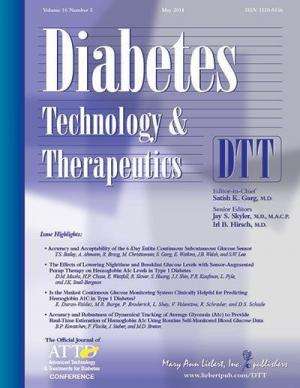Significant differences in CVD risk factors between men and women with type 2 diabetes

Type 2 diabetes greatly increases a person's risk of developing cardiovascular disease (CVD). A new study showing that cardiovascular risk factors such as elevated blood pressure and cholesterol levels differ significantly between men and women is published in Diabetes Technology & Therapeutics (DTT), a peer-reviewed journal from Mary Ann Liebert, Inc., publishers.
Joni Strom Williams, MD, MPH and coauthors from Medical University of South Carolina and Ralph H. Johnson VA Medical Center (Charleston, SC), compared three individual CVD risk factors and a "composite control" factor (comprised of all three risk factors together) among a group of men and women with type 2 diabetes. In the article "Gender Differences in Composite Control of Cardiovascular Risk Factors Among Patients with Type 2 Diabetes" the authors report significant disparities for blood pressure, low-density lipoprotein (LDL) cholesterol, and composite control, but not for control of glycosylated hemoglobin A1c.
"Cardiovascular disease continues to be a significant factor for increased morbidity and mortality in people with type 2 diabetes," says DTT Editor-in-Chief Satish Garg, MD, Professor of Medicine and Pediatrics at the University of Colorado Denver. "Every attempt should be made to reduce gender differences as they relate to co-morbidities."
More information: The article is available free on the DTT website at http://www.liebertpub.com/dtt.

















